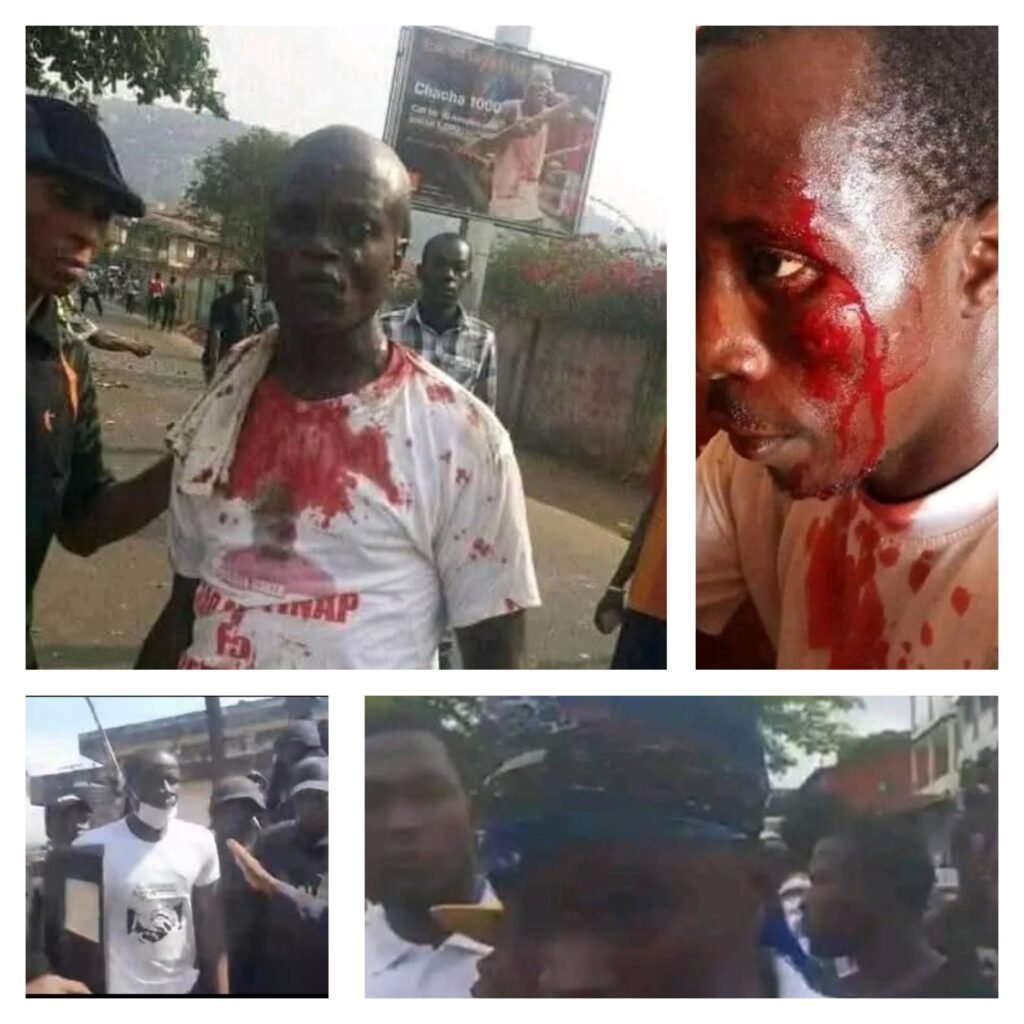In the heart of Monrovia, Tuesday became a day of unprecedented violence as thousands of peaceful protesters gathered in a bid to uphold the Constitution of Liberia, drawing attention to what they describe as a series of illegal maneuvers by the ruling government to remove Speaker Hon. J. Fonati Koffa. The protest was not just a political demonstration, it was a cry for justice, a desperate call for adherence to the rule of law, and a stand against the growing tide of constitutional violations.
The situation was already tense, but what unfolded during the day was nothing short of chaos. Protesters, including respected figures like veteran lawyer and human rights advocate Cllr. Pearl Brown Bull took to the streets to express their concerns over what they believed was an orchestrated effort by the Unity Party to undermine the sanctity of the constitutional process in Liberia. Central to their grievance was the continued illegal attempts to remove Speaker Koffa from his post and the Unity Party’s efforts to bypass the Constitution’s stipulations regarding the election and removal of the Speaker, often referred to as the Presiding Officer of the House of Representatives.
Cllr. Bull, along with other dignitaries, emphasized the critical importance of upholding the Constitution and ensuring that the country’s institutions are not manipulated for political gain. They emphasized that they cannot afford to allow lawlessness being witnessed to continued unchecked. Further, they are highlighting that the Constitution is the cornerstone of Liberia’s democracy, and it must be respected by all, regardless of political affiliation.
But the peaceful demonstration quickly turned violent as Liberian security forces, heavily deployed in the streets of the capital, began using force to disperse the crowds. Eyewitnesses reported that many protesters were brutally beaten, with photographs and videos circulating widely on social media showing police officers clashing with demonstrators. Several protesters were wounded, and there were reports of the use of tear gas and bullets to disperse the crowd. The images of bloodied protesters and the chaotic scenes of brutality painted a grim picture of the government’s response to a constitutionally protected act of civil protest.
Amid the unrest, another shocking development came to light. Mr. Sekou Kalasco, a former presidential aide to former President George Weah and a known opposition figure, was reportedly arrested by state security forces. Although details remain murky, sources claim that Kalasco’s detention is part of a broader effort to intimidate opposition political figures and silence dissent. Unconfirmed reports from insiders within the government suggest that Kalasco may be enduring severe mistreatment while in custody, with rumors of torture being employed to extract information or suppress his political activities.
The arrest of Kalasco, along with the brutal crackdown on protesters, has sparked widespread condemnation from all well-meaning groups. Many fear that the government’s heavy-handed tactics are part of a larger strategy to stifle political opposition and dismantle the democratic gains Liberia has made since the civil war ended.
As the situation continues to evolve, there is mounting pressure on the Liberian government to address these issues transparently. The international community, along with local civil society organizations, are closely monitoring the events, with hopes that justice and the rule of law will prevail. In the meantime, Liberians and the world are left wondering how long this cycle of violence, intimidation, and political manipulation will continue to hold the country hostage.
The protests may have been suppressed for now, but the calls for constitutional reform and political accountability are growing louder. The eyes of Liberia, and indeed the world, remain fixed on the government’s next move.

